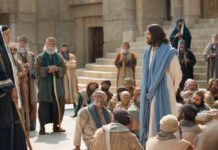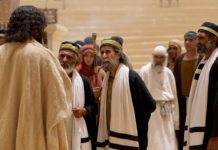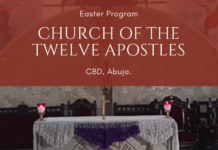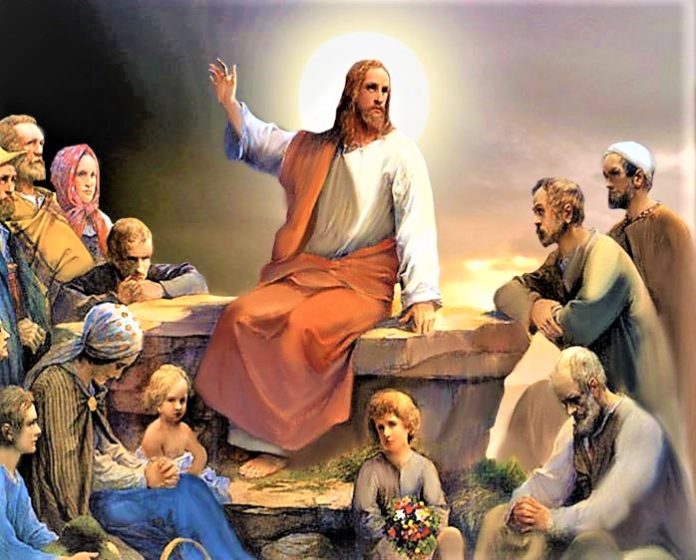FIRST READING
“Cursed is the man who trusts in man, blessed is the man who trusts in the Lord. ”
A reading from the Book of Jeremiah (Jeremiah 17:5-8)
Thus says the Lord: “Cursed is the man who trusts in man and makes flesh his arm, whose heart turns away from the Lord. He is like a shrub in the desert, and shall not see any good come. He shall dwell in the parched places of the wilderness, in an uninhabited salt land. “Blessed is the man who trusts in the Lord, whose trust is the Lord. He is like a tree planted by water, that sends out its roots by the stream, and does not fear when heat comes, for its leaves remain green, and is not anxious in the year of drought, for it does not cease to bear fruit.”
The word of the Lord
RESPONSORIAL PSALM Psalm 1:1-2.3.4 and 6 (R. Psalm 40:4ab)
R/. Blessed the man who has placed his trust in the Lord
Blessed indeed is the man
who follows not the counsel of the wicked,
nor stands in the path with sinners,
nor abides in the company of scorners,
but whose delight is the law of the Lord,
and who ponders his law day and night. R/.
He is like a tree that is planted beside the flowing waters,
that yields its fruit in due season,
and whose leaves shall never fade;
and all that he does shall prosper. R/.
R. Blessed the man who has placed his trust in the Lord.
Not so are the wicked, not so!
For they, like winnowed chaff,
shall be driven away by the wind.
For the Lord knows the way of the just,
but the way of the wicked will perish. R/.
SECOND READING
“If Christ has not been raised, your faith is futile.”
A reading from the first Letter of Saint Paul to the Corinthians (1 Corinthians 15. 12. 15-20)
Brethren: If Christ is preached as raised from the dead, how can some of you say that there is no resurrection of the dead? For if the dead are not raised, then Christ has not been raised. If Christ has not been raised, your faith is futile and you are still in your sins. Then those also who have fallen asleep in Christ have perished. If for this life only we have hoped in Christ, we are of all men most to be pitied. But in fact Christ has been raised from the dead, the first fruits of those who have fallen asleep.
The word of the Lord
ALLELUIA Luke 6:23ab
Alleluia. Rejoice and leap for joy, says the Lord, for behold, your reward is great in heaven. Alleluia
GOSPEL
”Blessed are you poor,’ woe to you that are rich. ”
A reading from the holy Gospel according to Luke (Luke 6: 17.20-26)
At that time: Jesus came down with the Twelve and stood on a level place, with a great crowd of his disciples and a great multitude of people from all Judea and Jerusalem and the seacoast of Tyre and Sidon, who came to hear him and to be healed of their diseases. And he lifted up his eyes on his disciples and said: “Blessed are you poor, for yours is the kingdom of God. “Blessed are you that hunger now, for you shall be satisfied. “Blessed are you that weep now, for you shall laugh. “Blessed are you when men hate you, and when they exclude you and revile you, and cast out your name as evil, on account of the Son of man! Rejoice in that day, and leap for joy, for behold, your reward is great in heaven; for so their fathers did to the prophets. But woe to you that are rich, for you have received your consolation. Woe to you that are full now, for you shall hunger. Woe to you that laugh now, for you shall mourn and weep. Woe to you, when all men speak well of you; for so their fathers did to the false prophets.”
The Gospel of the Lord
TODAY’S REFLECTION
The word ‘beatitudes’ simply means the eight statements made by Christ about those who are blessed. The Catechism of the Catholic Church tells us that, ‘The Beatitudes reveal an order of happiness and grace, of beauty and peace’ (CCC 2546). While the Gospel of Matthew (5:1-12) presents us with eight beatitudes, the Gospel of Luke presents four beatitudes and four woes. The four beatitudes are directed to the poor, the hungry, those who are weeping, those hated by the world. These people are blessed not because of their terrible situation but because, despite their situation, they still have their focus on God. The four woes are addressed to the rich, those with no pity who continually exploit the poor for their own advantage, those who are filled now, those who laugh now, those the world speak well of now. Surely it is no curse to be rich but it becomes a curse when we fail to make our wealth available for the good of others. The problem with most of us is that we trust more in our wealth than in God. The holy man Job is rich, as Scripture tells us, yet be is faithful to God. Even when Job’s wealth and everything vanishes, he simply surrenders to God saying, ‘God gives and God takes away’ (Job 1:21). When we trust in God we will surely bear spiritual fruits through our constant care of the destitute, the sick, the disabled, the mentally ill, the social outcast and indeed, the poor.














